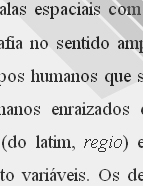

................................
The slow but gradual organisation of archives, the refinement of research methods under the auspices of the afore-mentioned "methodical" or "positive" school, which dominated Portuguese academic circles for several decades, fostered the development of more erudite studies. However, the systematic publication of primary sources for the entire country's regions and municipalities was still lacking. In this regard, the Gabinete de História da Cidade do Porto [History Office of the City of Porto], established in 1936, with its regular publication of Documentos e memórias para a história do Porto [ Documents and Memoirs for the History of Porto] and the Gabinete de Estudos Olissiponenses [Office for Lisbon Studies], founded in 1954, which played a similar role in Lisbon, were noteworthy. Among the researchers who published primary sources for local history, notable examples include Artur de Magalhães Basto for Porto; Maria Teresa Campos Rodrigues for Lisbon; António Baião for sources on the history of the Algarve; António Gomes da Rocha Madaíl for 18th-century parish information on Coimbra and documentation related to the city and municipality of Aveiro; and Manuel Monteiro Velho Arruda for documents concerning the discovery of the Azores. Essentially, this was all indispensable work for the writing of history, although the historian's work does not end there, as noted by V. Magalhães Godinho (Ensaios II. Sobre a História de Portugal [Essays II. On the History of Portugal] 1978, p. 92).
Traditional 19th-century-style monographs continued to be common, such as the Anais do município da Horta [Annals of the Municipality of Horta] (1943) by Marcelino Lima (1868?-1961). A public servant and self-taught scholar with secondary education and part of a group of intellectuals who enriched the cultural landscape of Faial Island in the late 19th century, Lima developed an interest in local and genealogical history. In his Anais, he presents a comprehensive history of the Horta municipality in the context of Faial Island. Naturally, he begins with the island's discovery and settlement, followed by a discussion of "governance" in the modern period, including references to donatories, captains-major, judges, and magistrates. He then details the establishment of the municipality and all the relevant aspects of municipal life, from finances, administration, regulations and municipal orders to the buildings and the multiple facets of municipal organisation. The city of Horta also warrants an extensive chapter, along with discussions of military and political matters, highlighting the most prominent local figures.
